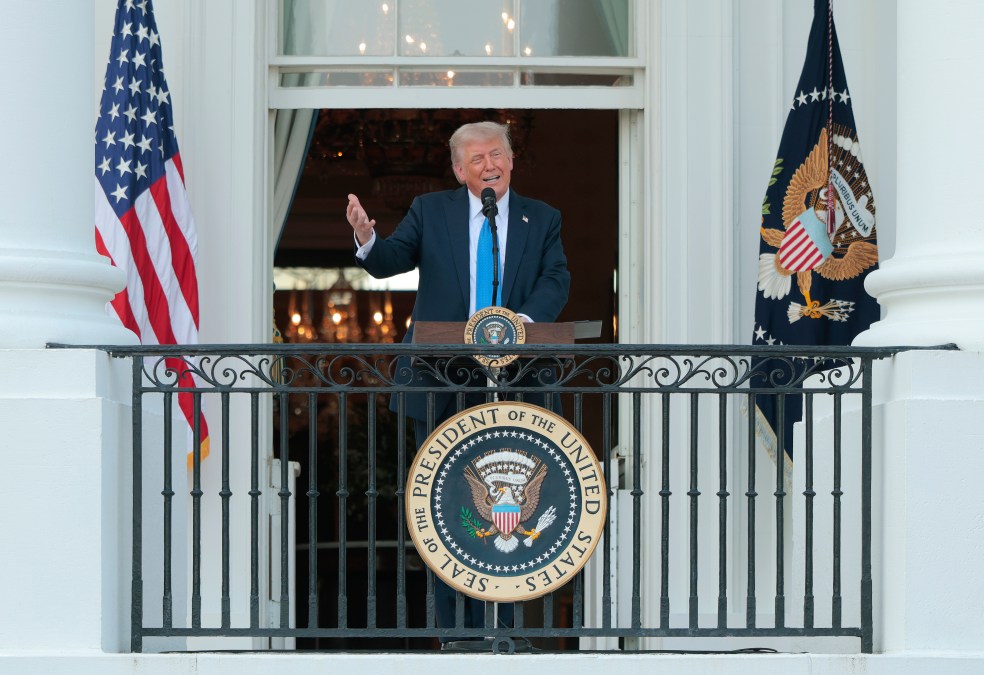The administration has yet to release the text of the order, instead summarizing it in a fact sheet.
Listen to this article
0:00
Learn more.
This feature uses an automated voice, which may result in occasional errors in pronunciation, tone, or sentiment.

President Donald Trump signed an executive order Friday that the White House says promotes developing secure software, adopting the latest encryption protocols, securing internet routing and rolling back parts of two executive orders from the Biden and Obama administrations.
“Cybersecurity is too important to be reduced to a mere political football,” a fact sheet on the executive order reads, criticizing President Joe Biden for attempting “to sneak problematic and distracting issues into cybersecurity policy” in an executive order just before he left office.
The White House didn’t release the text of the document but the fact sheet took on some of Trump’s favorite political topics, saying that it prevents misuse of sanctions “against domestic political opponents and clarifying that sanctions do not apply to election-related activities,” while also saying that “it refocuses artificial intelligence (AI) cybersecurity efforts towards identifying and managing vulnerabilities, rather than censorship.”
It’s unclear from the fact sheet which domestic political opponents the White House alleges sanctions have been used against; congressional Republicans released a report claiming the Biden administration used AI to promote censorship, which the executive order might be referencing. The White House did not immediately respond to requests for comment.
“President Trump has made it clear that this Administration will do what it takes to make America cyber secure — including focusing relentlessly on technical and organizational professionalism to improve the security and resilience of the nation’s information systems and networks,” the fact sheet states. The administration has triggered bipartisan concern about cuts to the budget of the Cybersecurity and Infrastructure Security Agency.
The order further directs federal action on post-quantum cryptography, as well as other steps to ensure that “Americans can know that their personal and home devices meet basic security engineering principles.” It also “strips away inappropriate measures outside of core cybersecurity focus, including removing a mandate for U.S. government issued digital IDs for illegal aliens that would have facilitated entitlement fraud and other abuse,” according to the fact sheet.


